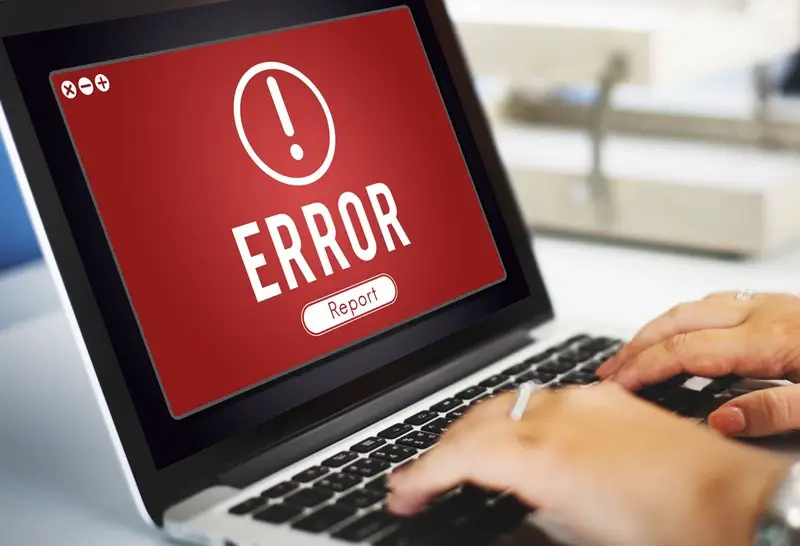There’s nothing more annoying than when you’re working or playing on your laptop, and you notice the unbelievable lag or continuous errors. Once or twice is understandable, but when history keeps repeating itself, please refrain from whacking your laptop! Even though you might feel like it never stops, there are many solutions you are yet to try.
Here are five common issues that people face with their laptops and how you can fix them:

1. Device is Running Slow
There are two main reasons that this happens:
- Too many files – Each program and file downloaded on to the device, takes up space. Some programs even create temporary files that you might be unaware of, which also eat up your laptop’s memory. If your hard drive is filled to the brim, your laptop’s response time will slow and affect your laptop’s performance.
Solution –You will need to free up some space in your hard drive and remove any programs you aren’t using. Do this by searching for Disk Cleanup Utility and ‘Add or Remove Programs’ and following through the steps to perform a cleanup and remove any programs you aren’t using. Or, you can purchase an external hard drive to store large files.
- Too many programs running – Your laptop can only handle so much. When there is an abundance of applications running at once, your laptop’s performance might be reduced or crash. These programs draw out resources and make your device run slower.
Solution – As soon as your laptop turns on, you need to open the Task Manager by searching for it or pressing CTRL+SHIFT+ESC on your keyboard and clear out programs you don’t need to use.
If you think these two cases are not the issue in your situation, click here to find more common causes and solutions.
2. Frozen Screen
You might find your screen freezing or becoming unresponsive, wherein you will or will not be able to move the cursor/mouse. The entire system becomes unresponsive when an application or process is taking up too much RAM or resources.
Solution –The first thing to do is wait. The system will become responsive when your laptop completes the process and releases resources. Don’t start smashing the keys because it only puts more strain on your CPU and makes the problem worse.
If this doesn’t work, try to bring up the Task Manager using the CTRL+SHIFT+ESC and see which process is taking up the most RAM and CPU resources. Close the process or program to get your system running normally.
3. Loud Sounds
- The number one reason for loud sounds coming from your laptop is a faulty fan. When a laptop fan has trouble cooling, it struggles to keep up with the heat, and you can usually hear a whirring sound, which is accompanied by an overheated laptop.
Solution –Make sure your laptop is always on a flat surface. If it is still overheating, try using cooling pads or a cooling stand. If this doesn’t work, replace the fan as soon as possible.
- The second reason is an issue with the hard drive, which can fail because of heat or firmware.
Solution –For hard drive issues, upgrade to a Solid State Drive (SSD) before your hard drive fails, and you lose all your data.
4. Applications not Installing or Updating
You might have tried downloading your favorite game or updating an application, but it failed. This usually happens when your hard drive is low on space. Once this happens, you won’t be able to download or make any updates until you make changes.
Solution –It’s time to clean! Unless you don’t clean up your hard disk, you can say goodbye to any new features. To start cleaning, find large files from your documents and clean up what you don’t need. Alternatively, you can remove programs you don’t need from Add/Remove Programs or opt for Windows Disk Cleanup that removes temporary files to free up space.
5. System Crashes
It can be annoying when you’re trying to do something important, and your system keeps crashing. This often happens when there is overheating or faulty software. Software sometimes contains bugs that freeze your system to prevent everything from getting affected.
Solution –For overheating, you will need to check your fan for any damage. If your laptop is getting too hot or making strange sounds, try using cooling stands or pads. Change the fan if nothing external seems to be helping.
For faulty software, update it! Do this by going to the Start Menu, clicking on All Programs and then Windows Update. Check for updates and click install.
Keep Your System Updated
These solutions are enough to help you solve your problems and get back to doing what you were doing. However, make sure you keep your operating software updated and patched to stay clear of bugs and glitches.
[Image via: Google Images]
